May 25, 2014
What is your educational background? From October 2002 to June 2008, I studied biology at the Carl-von-Ossietzky University of Oldenburg (Germany). My Diploma thesis entitled “Combination of microcalorimetry and rRNA-based stable-isotope probing to identify active microorganisms from tidal-flat sediments” was performed in the Paleomicrobiology Group of Prof. Dr. Heribert Cypionka at the Institute for Chemistry and Biology of the Marine Environment (ICBM) in Oldenburg (Germany). During my biology studies I worked from August 2005 to January 2006 as a student assistant in the Paleomicrobiology Group of Prof. Dr. Heribert Cypionka at the ICBM (Oldenburg, Germany), to get more insights into research and broaden my knowledge. I was mainly working on the enumeration of viable cells (MPN technique) and used a variety of molecular analysis to investigate microbial processes in Wadden Sea tidal-flat sediments.
After my Diploma studies, I worked from July to September 2008 as a research assistant in the Paleomicrobiology Group of Prof. Dr. Heribert Cypionka at ICBM. I was involved into the establishment of the so-called technique stable-isotope probing. Next, I performed my PhD studies from September 2008 to May 2012 in the Molecular Ecology Group of Prof. Dr. Rudolf Amann at the Max-Planck Institute for Marine Microbiology (MPI) in Bremen, Germany. In addition, I participated in the International Max-Planck Research School of Marine Microbiology (MARMIC). In May 2012, at the University of Bremen, I finished my PhD thesis (with the degree Dr. rer. nat.) about hydrocarbon-degrading sulfate-reducing bacteria at marine gas and oil seeps.
From Aug. 2012 ‘til present, I am a postdoctoral research associate in the Group of Prof. Dr. Mandy Joye in the Department of Marine Sciences at the University of Georgia in Athens (USA). Currently, I am investigating the impacts of the 2010 Deepwater Horizon oil spill on microbial communities in the Gulf of Mexico within the framework of ECOGIG.
Where are you from, and how does it compare/contrast to your current location? I am originally from Germany and this is also where I earned most of my educational background. However, already in Germany I used to study and work in international teams. In 2011 during my PhD studies, I got the great opportunity to work for a longer time period abroad: I was teaching in the Microbial Diversity Course in Woods Hole, MA (USA). It was such an exciting experience that I decided to do my postdoctoral research abroad. In my opinion, working abroad is generally a unique opportunity because you gain lots of new perspectives. For instance, you learn about other mentalities and cultures. From the professional point of view, working in the US is an outstanding chance for me because I am extending my international network, improve my English skills, and learning about the different academic systems and working attitudes. I am convinced that my experiences abroad will be advantageous for advancing my scientific career.
What aspects of your life, education, etc., have contributed to who you are as a scientist? Already in school I realized that I was especially interested in general biology, which resulted in pursuing the career of a biologist. The first time I came in contact with state-of-the-art research was during my studies at the University of Oldenburg in an advanced practical course that took place in the Institute for Chemistry and Biology of the Marine Environment (ICBM). This course awoke my interest for what I am doing today: I discovered my passion for research and I was more and more fascinated by microorganisms, their diversity, and their global role in the environment. Later on, during my PhD studies at the Max Planck Institute (MPI) for Marine Microbiology in Bremen, my fascination for the ecological function of marine microorganisms grew even stronger. I extended my research to the analysis of the community composition and ecological role of hydrocarbon-degrading sulfate-reducing bacteria from natural marine gas and oil seeps. Right at that time the Deepwater Horizon oil spill happened. And while I was working with hydrocarbon-degrading microorganisms from natural oil seeps, I wished to have the possibility to also study samples that were directly impacted by the oil spill.
How did you become involved with ECOGIG? In the framework of ECOGIG, Prof. Dr. Mandy Joye from the University of Georgia was seeking a Postdoc that would investigate the ecosystem impacts of oil and gas inputs to the Gulf of Mexico. I was very excited when I read the advertisement and applied immediately. Finally, I got the great opportunity to become part of ECOGIG.
What is your role and specific research in the ECOGIG project? As a marine ecologist and microbiologist I am especially interested in the impacts from the oil spill on microbial communities from the water column and the sediments. Furthermore, in the lab of Prof. Dr. Mandy Joye and the framework of ECOGIG I have the great chance to study the interrelated biogeochemistry and thus to get a broad picture about what happened during and after the oil spill. For instance, I am currently working on a mesocosm experiment in which we address the impacts of chemical dispersants on pelagic microbial communities. Chemical dispersants have been used as a response action during the Deepwater Horizon oil spill and were also routinely used after previous oil spills. However, the effects of these substances on microbes from marine ecosystems remained largely unknown. Performing this experiment in the framework of ECOGIG gives me the unique opportunity to collaborate with lots of renowned scientists from diverse disciplines. Thus, in a joint ECOGIG effort we are able to gain lots of insights from various perspectives. In the end that brings us all one big step closer to understanding what happened after the oil spill.
What is the history of your cruise participation, ECOGIG or otherwise? My first cruise participation was on the RV Meteor during M76/1 from Cape Town (Rep. of South Africa) to Walvis Bay (Rep. of Namibia) with Dr. Matthias Zabel (MARUM, Bremen, Germany) and Dr. Timothy Ferdelman (MPI, Bremen, Germany) as chief scientists. We investigated specific biogeochemical processes and microbial communities in the sub-seafloor at the upper continental margin off Namibia. During that cruise I was especially involved in sampling for molecular and microbiological analysis (using a multicore device, a gravity corer and “MeBo”, a new wire-line drilling technique for the sea floor). On board the ship, I did cell counts with different fluorescence staining techniques to enumerate microbes that live in sediments.
In September 2012, right after I joined ECOGIG, I participated in the cruise EN515 on the RV Endeavor in the Gulf of Mexico (USA) with Prof. Dr. Joe Montoya (Georgia Tech, Atlanta, GA, USA) as chief scientist. During this cruise we mainly focused on the water column (using a CTD) but also sampled sediments (using a multicore device) from natural seeps as well as contaminated sites from the oil spill. I was involved in sampling for molecular and biogeochemical analysis. On board of the Endeavor I immediately extracted gases (mainly methane) from vertical transects of seawater and measured its concentrations.
Lastly, in November 2012 I participated in the ECOGIG cruise FK006b on RV Falkor in the Gulf of Mexico (USA) with Prof. Dr. Ian MacDonald (Florida State University, Tallahassee, FL, USA) and Prof. Dr. Chuck Fisher (Pennsylvania State University, University Park, PA, USA) as chief scientists. During this cruise we sampled the water column (using Niskin bottles attached to an ROV) and sediments (using a multicore device and an ROV) from natural gas and oil seeps, contaminated oil spill sites, and coral sites. I took samples for molecular and biogeochemical analysis as well as live samples for experiments. In addition, I directly measured gas (methane and hydrogen) and ammonium concentrations on board the ship.
What do you like most about working at sea? Generally, I love the ocean and enjoy being at sea. Working at sea is extremely fascinating and an experience you will never forget, though it is not easy to describe: there are some routines while at the same time situations are unpredictable (e.g. sampling success) which keeps the excitement level very high. Furthermore, when working at sea you are more creative because you are coping with challenging situations (e.g. working tools are limited). In my opinion, being at sea makes you grow and is a lot of fun.
What, if any, novel or unique findings have you had? During my PhD studies, I investigated the distribution and abundance of sulfate-reducing bacteria from natural gas and oil seeps. While enrichment cultures and isolates that were obtained in the laboratory demonstrated that microbial hydrocarbon-degradation under anoxic conditions is possible, the in situ relevance of marine hydrocarbon degraders remained largely unknown. One of my novel findings was that diverse organisms belonging to the Desulfosarcina/Desulfoccus clade within the Deltaproteobacteria are the dominant group of hydrocarbon degrading sulfate-reducing bacteria from natural marine gas and oil seep sediments.
Moreover, I identified and denoted novel groups of alkane degraders in marine seep sediments. In addition, my findings suggested that alkane-degrading SRB groups might significantly impact sulfur and carbon cycles at marine hydrocarbon seeps.
Beyond, I discovered a novel partner of the anaerobic methanotrophic (ANME)-Archaea. This novel partner belongs to a deep-branching group of Deltaproteobacteria, called SEEP-SRB2, which comprises only uncultivated members. The high abundance of the SEEP-SRB2 group indicated their important ecological role at marine hydrocarbon seeps.
What do you see as your major contributions to the ECOGIG program? One of my major contributions is the research I perform in the framework of ECOGIG: the outcome from a mesocosm experiment I was conducting will be exciting for the whole context of ECOGIG-related research. The protocols that I optimized along the way will hopefully contribute to other oil-spill related research. For instance, I was working on a method to get oil spill–like conditions with respect to oil and dispersant amendments. As a positive side effect, I obtained enormous oil-derived marine snow formation. I was happy to share my protocols with collaboration partners that are investigating these aggregate formations.
Another big advantage for being part of ECOGIG is that we are working together as a team during research cruises. Thus, when I participated on ECOGIG cruises I took lots of samples for collaboration partners in addition to my own sample requirements. But of course it also works the other way around and I was very grateful when Dr. Laura Lapham and Dr. Beth Orcutt retrieved 160 L of deep-sea water from one of our long-term monitored natural gas and oil seeps. Without these precious samples I would not have been able to perform my research. Thus, all ECOGIG-partners contribute to the team effort, which is really fantastic.
Is there anything else you would like to say about your ECOGIG involvement and its effect on your science?The funding for my research is mainly provided by ECOGIG (through Prof. Dr. Mandy Joye). Thus, ECOGIG gives me the great opportunity to conduct the fascinating research that I am performing at the moment. This includes having access to unique samples and/or taking samples on research cruises, collaborating with renowned experts from various disciplines and building up a network. In addition, ECOGIG supports us to communicate and discuss our research, which is a very important aspect of science. In January 2013, ECOGIG funded my participation to an oil spill conference in New Orleans, LA (USA). For all these and many other reasons, I am very grateful for ECOGIG’s involvements and effects on my research and scientific career.

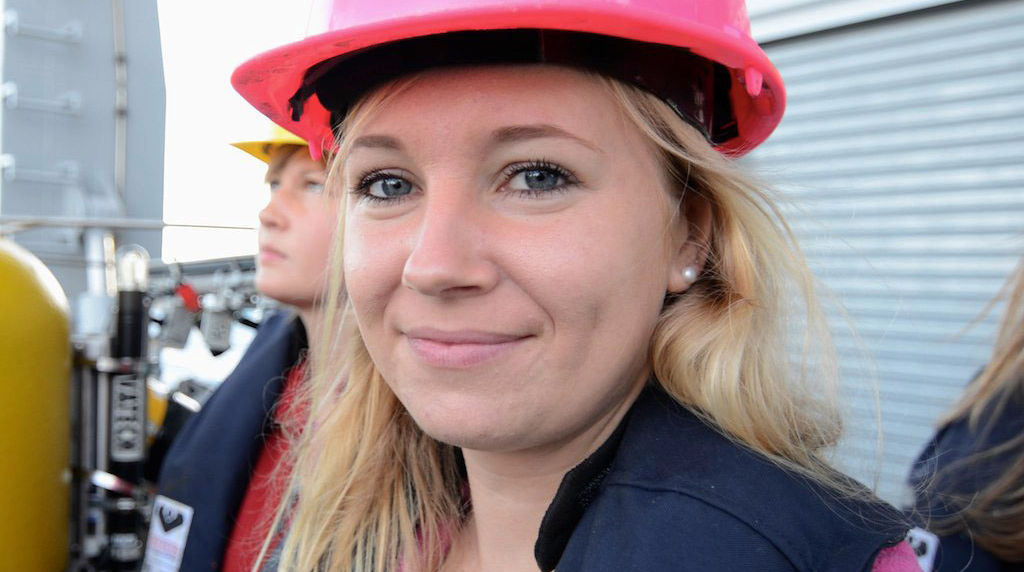
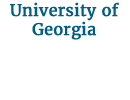




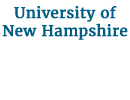



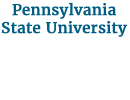

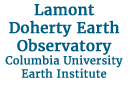

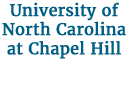


 back to top
back to top